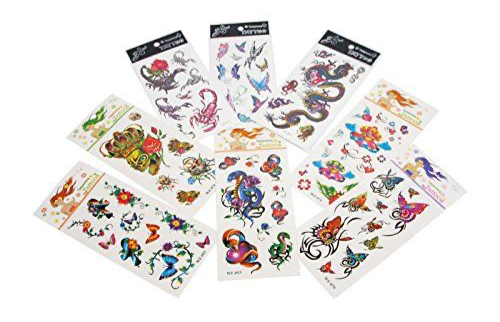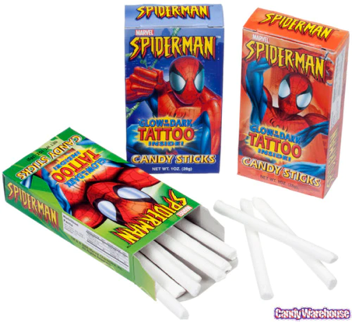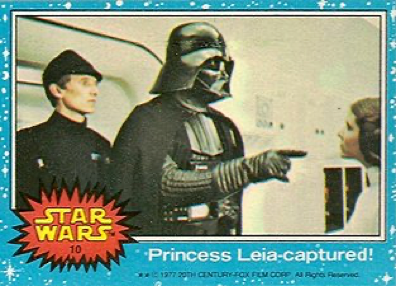10 Types of Temporary Tattoos: Exploring The World Of Non-Permanent Body Art
- Sally
- Jan 18, 2024
- 6 min read

Photo by Aneez Mohammed on Unsplash
We’ve all perhaps tried temporary tattoos (aka 'fake tattoos') at some point in our lives, and if you haven’t, then chances are you’ve probably seen the packs of decorative design sheets before? If you go a little further back (though still around today), you may have come across the boxes of candy sticks that contained a fun character transfer…
Images: Pinterest

But where did temporary tattoos come from? Well, if we’re referring to the kind on transfer paper and applied to the skin with a dab of water, then the answer is likely from packs of Cracker Jacks® popcorn and peanuts way back in 1912, according to Tattoo Archive.
It was the company’s marketing campaign of "A Prize in Every Box" that seemingly introduced temporary tattoos as among the items you could win inside boxes.
By the 1950s, the temporary tattoos were sold for one cent each, and evolved throughout the years. Baseball tattoos became popular by the 50s, and by the 70s they were found in packs of trading cards like Star Wars and Smurfs.
Early temporary tattoos were made with food colouring, and it wasn’t until the 1980s that science-based technology company, 3M, began printing designs onto plastic sheeting like we see today.
Image: Etsy & Wikipedia
When searching for the origins for temporary tattoos, there’s no definitive answer aside from the aforementioned Cracker Jacks® introduction of them. Yet when considering temporary tattoos, it’s imperative we look at the art of Henna.
Mehndi, or Henna as it’s known in the West, is the earliest form of temporary tattooing. Unlike food colouring on paper or transfer film, Mehndi uses a paste called henna; a dye prepared from the Lawsonia inermis plant, also known as the henna tree.
Traditionally, Mehndi is applied to the skin during Hindu weddings and for festivals such as Diwali, Karva Chauth and Teej, to name a few.

Image: Shutterstock, Photograph by Sam Thomas A
The origins of Mendhi can be recorded as far back as Ancient Egypt, with the paste used to stain mummies and their wrappings, believing the henna preserved the person’s spirituality, as well as strengthening the skin and preventing decay. Mendhi also has historical roots in Pakistan, India, Africa, the Middle East, and many more.
There are numerous varieties of henna, though the type observed in body art is that of natural henna, with its rich reddish-brown dye that darkens over time and lasts several weeks.
Much like the stick-on temporary tattoos of more modern times, tattoo artists use stencils to lay designs onto the skin prior to machine or hand-poking into the skin. So, if you’ve never tried a temporary tattoo, you can expect to do so if you’re planning on getting a permanent tattoo.

You can also check out our Instagram reels to see the process of a tattoo appointment, which includes the temporary tattoo bit! (aka stencil application)
🤩
We've covered the most common types of temporary tattoos above but what about the rest? That's right, there are others!
So what are the 10 types of Temporary Tattoos?
1.Water Transfer Tattoos: These are the ones you probably remember from childhood. You place a design on your skin, add a little water, and voilà! They look like the real deal but come off in a few days. To apply, you simply grab a sponge, some lukewarm water in a bowl. Make sure your skin is dry and clean before application and doesn't have any lotion or oil as this can affect the adhesion of the tattoo.
2. Henna Tattoos: The paste is applied using a henna applicator or a cone, dries on your skin, and leaves a lovely reddish-brown stain that lasts for a couple of weeks. Apparently, the longer you leave it on to absorb into the skin, the darker it gets and the longer it stays in, depending on skin type and body placement, around 2 weeks. You'll normally see these at Indian weddings or Diwali celebrations and they're so stunning!
3. Airbrush Tattoos: Think of these as the cool, intricate designs you might get at a fair or festival. They're sprayed onto your skin with an airbrush machine and can stick around for 7 days depending on the aftercare.
4. Stick-On Tattoos: Remember the sheet of cartoon characters or shiny symbols that you could peel and press onto your skin? Those are stick-on tattoos. Quick to apply and gone within 3-7 days.
5. Glitter Tattoos: These are all about the sparkle. You use a stencil and skin-safe adhesive to apply glitter or coloured powders. Great for special events and they can last a few days.
6. Inkjet Printer Tattoos: If you want to get creative, you can design your own tattoos using special paper and an inkjet printer. Print your design, apply it, and you've got a custom temporary tattoo. This could be a costly way to get temporary tattoos though, as you'll need a printer, specific type of paper, and obviously printer ink.
7. Flash Tattoos: For a touch of glamour, flash tattoos come in shiny metallic or foil designs. They're like jewellery for your skin and can last a week or so. Some of them are made with plant-based inks and vegan adhesive, non-toxic and safe.
8. UV-Responsive Tattoos: Ever seen tattoos that glow under blacklight? Those are UV-responsive tattoos. Perfect for a night out, especially at places with blacklight....Always let your friends know where you are and make it easy for them to stop you from making a mistake with your beer goggles on. Do people still go to a rave with glow sticks and stuff?👀
9. Custom Tattoos: Some companies let you create your very own temporary tattoos with personalised designs, great for events or expressing your unique style and creative talent. Companies like Inkbox lets you upload your own designs but make sure you read their rules on fair use, copyright and permission to make sure you're adhering to their policies. Their temporary tattoos last between 1-2 weeks!
10. Decal Tattoos: These are like water transfer tattoos, but not just for skin – they can be applied to nails, skin, or other surfaces. They come in various designs and colours and you can get them on Amazon.
Fun Facts on Temporary Tattoos:
Tattoos in movies are transfers too! They can spend around 3 hours applying them (depending on quantity) and 45 minutes on removal.
Copyright infringement also applies to the movie world. Since Warner Bros. got sued by a tattoo artist after using a design similar to his, they now have to make sure that they obtain permission before using any tattoo artists' designs in their movies. The movie in question was The Hangover: Part II featuring Mike Tyson's famous face tattoo.
To avoid legal issues, special effects staff create their designs from scratch.
If actors already have tattoos that need covering up for a particular role, they apply an orange layer of concealer to neutralise ink colour plus body paint and makeup to achieve the actor's natural skin tone. It can take minutes for a small tattoo and around an hour for a large tattoo.
If you're looking to wear temporary tattoos for fun or as accessories to complete your look, you can certainly try some of the methods above. It can also be good for trying out a design before committing to a permanent one but bear in mind that not all designs can be tattooed super small and highly detailed.
Some clients are known to use their temporary tattoos as design references, asking for the same design, at exactly the same size. Not all tattoo artists are comfortable with copying a design unless a permission has been obtained from the original artist out of respect. Secondly, say you bought a highly detailed floral temporary tattoo and it measures at 5cm tall, depending on the level of detail, you will need to size up for a real tattoo. Tattoo ink spreads over time so you will need sufficient space for the lines to breathe or you risk lines merging together making for an ineffective and difficult to read design as it ages. There's no doubt that freshly done tattoos always look amazing but Google is your friend so make sure you use it to your advantage and search for 'fresh tattoos vs healed'.
We hope this has been both nostalgic and helpful. If you are ready for a permanent tattoo, use the info we've given you regarding sizing expectations. Your chosen tattoo artist will be able to advise you on this and help you get the best possible tattoo that lasts.
If you're local to Birmingham UK, reach out to us with your ideas via info@ktrewtattoo.com or send us an enquiry using our booking form.








